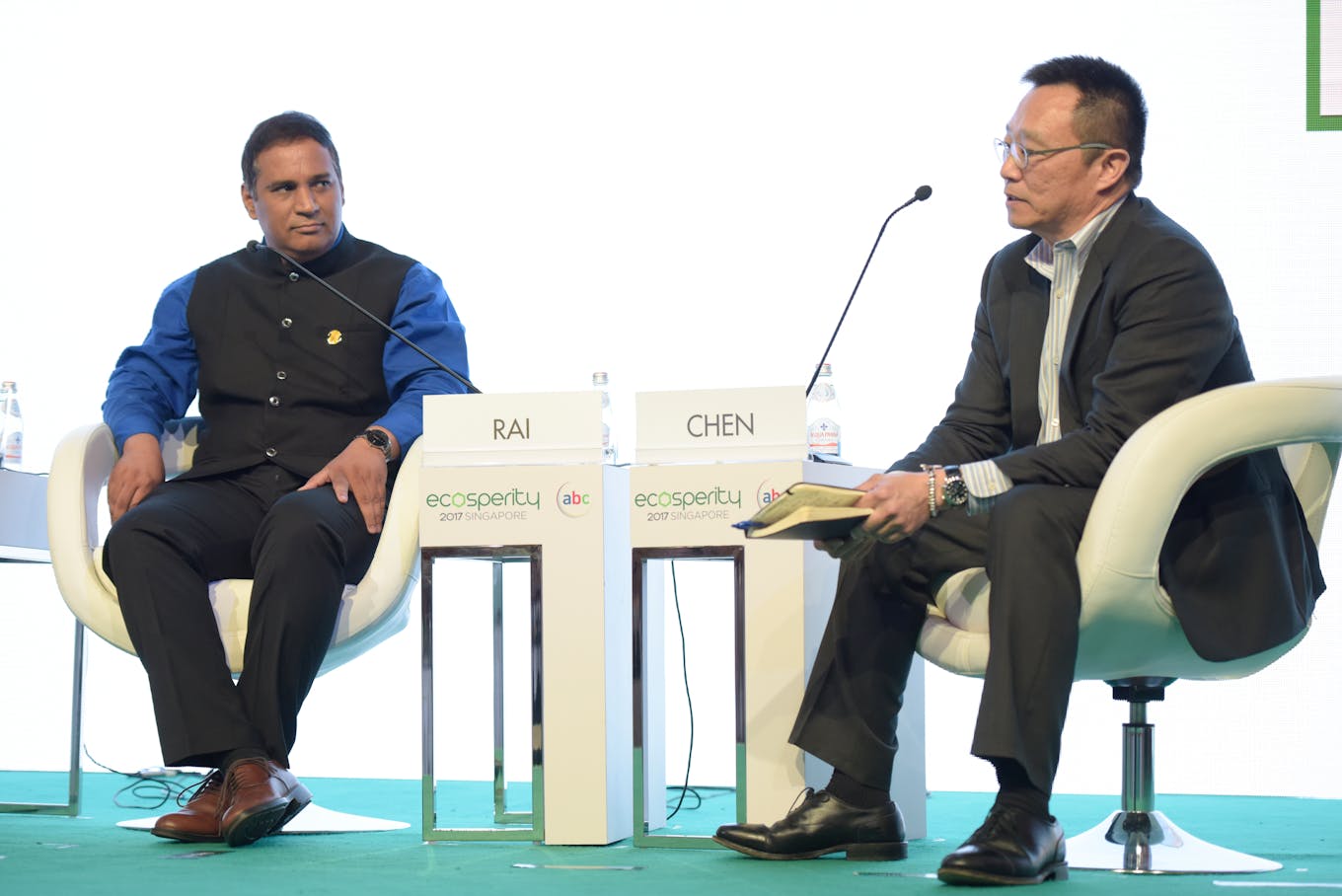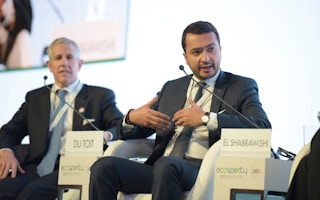Sustainability has a reputation for being a sector populated with compassionate liberals. But bleeding hearts have no place in the world of sustainable finance, according to Vineet Rai, group founder of impact investing firm Aavishkaar-Intellecap.
To continue reading, subscribe to Eco‑Business.
There's something for everyone. We offer a range of subscription plans.
- Access our stories and receive our Insights Weekly newsletter with the free EB Member plan.
- Unlock unlimited access to our content and archive with EB Circle.
- Publish your content with EB Premium.
“My first learning was that good people investing in good people is bad business,” he told delegates at Ecosperity, an annual sustainability conference held by Singapore investment firm Temasek on 5 June.
“It doesn’t mean good people are bad, it’s just that business requires a certain way of thinking, especially if you want to generate returns and make impact,” he said on a panel titled Better Finance: A Quest for New Value.
Back in 2002, Rai raised US$1 million from 110 Singaporeans to invest in companies he felt were making a difference. He soon realised that beyond “doing good”, the companies he invested in needed to focus on their bottom line and be serious about turning a profit.
The focus of the panel was how to funnel capital towards doing good, or specifically how to help achieve the United Nations’ Sustainable Development Goals (SDGs), a set of targets to address challenges such as poverty, health, education and climate change.
On addressing poverty, Rai shared his experience before he went into impact investing, working as a forester in a poor, rural part of India. Rai had asked the people he was surrounded by what they wanted to be in the future. Almost every one had said they wanted to be rich.
Rai commented: “How do you address this inequity? You have to make those poor people rich. I’m not talking about materially rich, but giving them the choice to have access to a job, energy, health, insurance.”
“
Their stakeholders will ask them some hard questions in 10 or 20 years, such as ‘What were you doing with the capital?’
Henrik du Toit, chief executive, Investec Asset Management
In 2006, Rai convinced investors that it made good business sense to join him in bringing capital and talent to remote, poverty-stricken areas – initially in India, and subsequently in Indonesia, Sri Lanka, Bangladesh and Pakistan.
Starting with just US$100, his group now manages around US$400 million in assets.
Rai’s firm is one of many supported by the International Finance Corporation (IFC). Established in 1956, the World Bank-backed financial group invests only in private enterprise and emerging markets, providing capital along the entire investment spectrum, including providing equity, investing in debt, and mobilising capital.
From an initial starting point of US$2.6 billion paid in capital, IFC has invested more than US$200 billion, using its capital to invest and re-invest in emerging markets in a range of sectors.
Rana Karadsheh-Haddad, IFC’s country manager and chief investment officer for Singapore, said: “In the large scheme of capital flows, we’re a small drop in the bucket. But what it does tell you is that sustainable investing in emerging markets can make money.”
Global insurance firm AXA, which currently has US$1.5 trillion of assets under its management, is also focusing on emerging customers. This group includes not only the poorest demographic, but low-to-middle income populations in countries like India, Indonesia, Nigeria and Morocco, who earn between US$2 to US$13 a day.
So far, AXA has dedicated 400 million euros to impact funds investing in future technologies, divested from coal and tobacco, re-invested 300 billion euros in clean energy and green investments, and developed in-house environmental, social and governance (ESG) criteria, which is already deployed in two-thirds of its investments.
AXA’s group chief innovation officer Hassan El-Shabrawishi, who previously worked for IFC, said AXA’s aim is to reach 50 million emerging market customers, specifically those in Asia, by 2020.
He noted that it might be a challenge, given that AXA took 30 years to reach 107 million clients across 64 markets - and the challenge is not just about scaling up.

Equilibrium Capital founder Dave Chen poses a question for Vineet Rai, founder of impact investing firm Aavishkaar-Intellecap Image: Temasek
He explained: “To serve this market, you cannot just say, ‘I have this product, I’ll make it smaller and sell it’. You have to use a human-centred design approach to really understand their needs.”
“I believe that this [emerging markets] team would not have been so dedicated if it was only for the returns,” said El-Shabrawishi, adding that that the business happens to be “very profitable”.
Besides innovative financial instruments, it is crucial to persuade heads of companies that embedding sustainability across the board creates better shareholder value, said Investec Asset Management chief executive Hendrik du Toit, who is also an advisor for the Business and Sustainable Development Commission.
“One of the things we advocate is to make chairmen and CEOs of substantial companies aware that their sustainability obligations are as important as their audit obligations, because their stakeholders will ask them some hard questions in 10 or 20 years, such as ‘What were you doing with the capital?’”
He added that if companies raising capital can show how they are transforming their businesses to support the SDGs, it would indicate that they are “in touch with the world” and investment managers would feel “a lot more comfortable”.
When Dave Chen, the panel moderator and founder of sustainable investment firm Equilibrium Capital, asked if he would make governance and sustainability benchmarking a part of putting a portfolio together, Du Toit said that they are in the early stages of doing so for a number of projects.
He cited BlackRock chief executive Larry Fink’s recent letter to S&P 500 companies and large European corporations indicating that the firm will not hesitate to vote against companies that ignored environmental, social and governance issues to protect clients’ long-term economic interests.
Referring to an increasingly connected world, Karadsheh-Haddad concluded: “People are aware of what’s happening next door, in their backyard. This makes it imperative that the business community ensures that we collectively look at sustainable development and its impact.”














